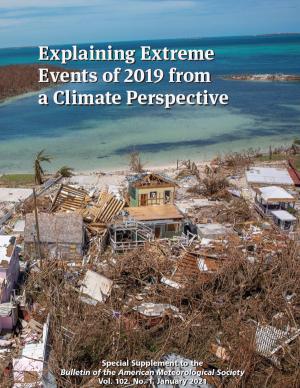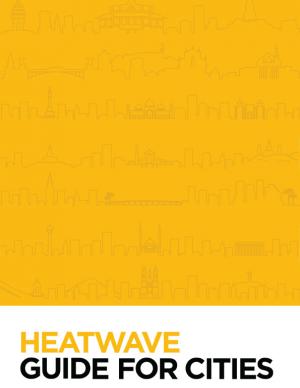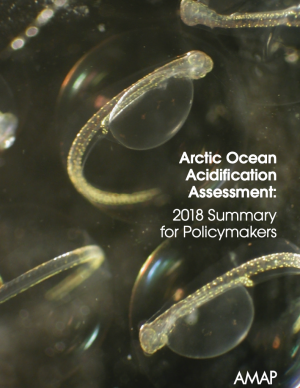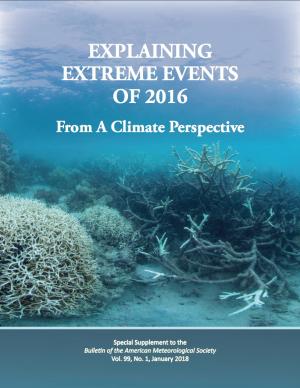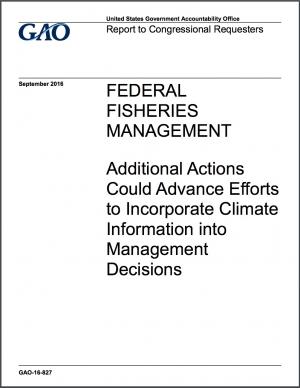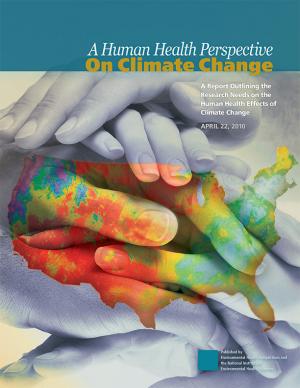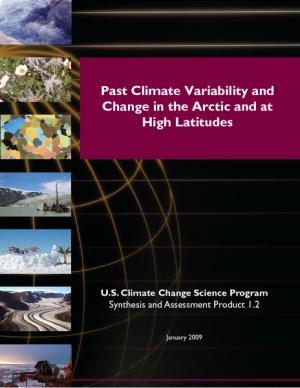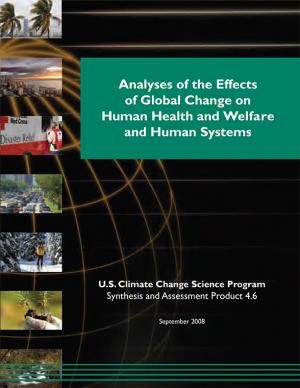Access a range of climate-related reports issued by government agencies and scientific organizations. Browse the reports listed below, or filter by scope, content, or focus in the boxes above. To expand your results, click the Clear Filters link.
This is the FY22 edition of the U.S. Gllobal Change Research Program's annual report to Congress mandated by the the Global Change Research Act. The report provides an overview of the Program’s progress in delivering on its strategic goals as well as a summary of agency expenditures under USGCRP’s budget crosscut.
This series of BAMS special reports presents assessments of how human-caused climate change may have affected the strength and likelihood of individual extreme events. The series has been published annually since 2011.
The ninth edition of the report, Explaining Extreme Events in 2019 from a Climate Perspective, presents 15 new peer-reviewed analyses of extreme weather across four continents and one sea during 2019. It features the research of 77 scientists from 7 countries looking at both historical observations and model simulations to determine whether and by how much climate change may have influenced particular extreme events.
The world continues to emit greenhouse gases while the planet's climate is changing faster than ever. This report intends to take up the latest and most essential scientific findings published in an extraordinary year—the climate science year in review.
Heatwaves are deadly and their impacts are on the rise globally due to climate change. People living in urban areas are amongst the hardest hit when a heatwave occurs because these are hotter than the surrounding countryside. It is crucial that cities incorporate heat-reduction tactics such as green spaces into their plans for growth or retrofit them in built areas; this emergency can only be avoided if city institutions, community groups, and planners contribute to reducing heat risk now and in the future. This guide is intended to help city staff take the first steps to understanding the heat risks they face, develop an early warning system, work with partners to consolidate heat action plans, and adapt urban planning practices.
This Summary for Policymakers summarizes the findings of the AMAP Assessment 2018: Arctic Ocean Acidification report released in October 2018. It offers a review of the latest science relating to regional ocean acidification, the biological responses to it, an overview of case studies and their associated findings, and recommendations for the Arctic Council.
As incomes rise and populations grow, especially in the world’s hotter regions, the use of air conditioners is becoming increasingly common. In fact, the use of air conditioners and electric fans already accounts for about a fifth of the total electricity in buildings around the world–or 10 percent of all global electricity consumption. Over the next three decades, the use of ACs is set to soar, becoming one of the top drivers of global electricity demand. This new analysis by the International Energy Agency shows how new standards can help the world avoid facing such a “cold crunch” by helping improve efficiency while also staying cool.
This BAMS special report presents assessments of how human-caused climate change may have affected the strength and likelihood of individual extreme events. This sixth edition of explaining extreme events of the previous year (2016) from a climate perspective is the first of these reports to find that some extreme events were not possible in a pre-industrial climate.
As climate changes and ocean temperatures rise, the abundance, distribution, and life cycles of fish in federally managed ocean fisheries may change too. Federal agencies managing ocean fisheries have limited information to determine exactly how climate change might harm specific fish populations, and may not always understand the potential effects. To better manage climate-related risks, the report recommends (1) the development of guidance on how to incorporate climate information into the fisheries management process, and (2) finalizing Regional Action Plans for implementing the NOAA Fisheries Climate Science Strategy that incorporate performance measures for tracking achievement of the Strategy’s Objectives.
A 24-year tradition encompassing the work of 425 authors from 57 countries, 2013's State of the Climate report uses dozens of climate indicators to track patterns, changes, and trends of the global climate system.
This report summarizes the current state of knowledge on potential abrupt changes to the ocean, atmosphere, ecosystems, and high-latitude areas, and identifies key research and monitoring needs. The report calls for action to develop an abrupt change early warning system to help anticipate future abrupt changes and reduce their impacts.
This report, by a federal working group led by the National Institute of Environmental Health Sciences, highlights 11 key categories of diseases and other health consequences that are occurring or will occur due to climate change. The report provides a starting point for coordination of federal research to better understand climate’s impact on human health. The recommendations of the working group include research to identify who will be most vulnerable, and what efforts will be most beneficial.
Average temperatures in the Arctic have increased at almost twice the rate of the planet as a whole. Such temperature changes have been accompanied by shrinking sea ice, melting ice and permafrost on land, and widespread impacts to land and ocean ecosystems. This Synthesis and Assessment Product, developed as part of the U.S. Climate Change Science Program, offers recommendations for future research in this area.
This Synthesis and Assessment Product from the U.S. Climate Change Science Program reviews impacts of global climate change on three broad dimensions of the human condition: human health, human settlements, and human welfare. This report examines opportunities for adaptation and associated recommendations for addressing data gaps and near- and long-term research goals.


